
W.H. Bartlett and J. Appleton The port of Beirut 1838

Johns Hopkins reports over 2,000 US deaths in 24 hrs for the first time in 3 months. Worldometer says 1,203.
The US passed 5 million cases.

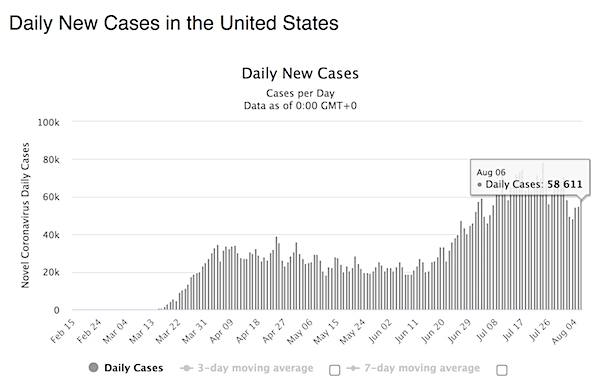
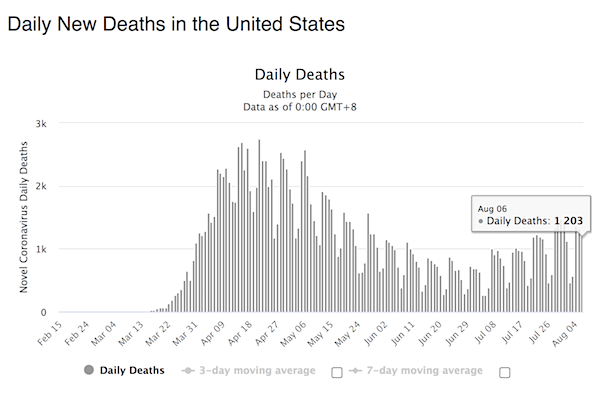

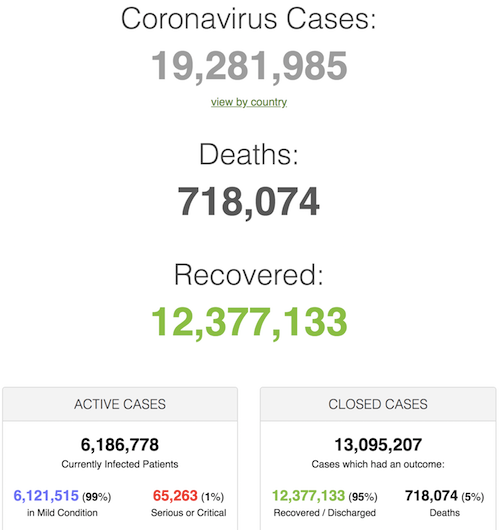

Nomiki DNC funds
DNC decisions basically come from a black box.@jjz1600, a 28-year DNC member, joins @NomikiKonst and tells her the fun way he found out that the DNC was releasing funds to @HillaryClinton during the 2016 presidential primary. pic.twitter.com/4S4QaJ9WBT
— The Nomiki Show (@TheNomikiShow) August 7, 2020

New England Complex Systems Institute means Yaneer Bar-Yam.
Making trying to save your economy more important than fighting COVID is set to backfire. Don’t flatten the curve, crush it. That so many countries have failed in that regard doesn’t just mean they will get second and third waves, more importantly it means their economies will be hurt more than they already are.
• Minimizing Economic Costs For COVID19 (NECSI)
It is often claimed that there is a trade-off between containing COVID-19 and minimizing disruption to the economy, and that eliminating COVID-19 (by which we mean getting to no community transmission—i.e. no cases from unknown sources) is too costly to be worthwhile. Here, we examine the validity of these claims.
We consider a space of policy action in which a country (or state) decreases its number of cases per day by reducing the reproductive number R below 1 for a duration of its choosing and then maintains thereafter a constant number of cases per day. The question is what is the right level at which to maintain this constant number of cases per day. The essential idea is that there are two strategies: 1) an elimination strategy in which R<1 is maintained until there is no more community transmission and after which the country reopens (save for targeted responses in specific locations to combat cases that are imported), and 2) a steady-state strategy, in which R<1 is maintained for some period of time but not long enough to eliminate community transmission and after which R=1 is maintained nationwide.The elimination strategy requires a greater upfront cost, since R<1 is maintained for a longer duration, but requires lower costs thereafter since economic activity in the country can largely return to normal, with the exception of targeted measures in specific locations in the event of a second outbreak caused by an imported case. The steady-state strategy, on the other hand, requires the costly maintenance of R=1 nationwide in order for cases not to rise; if community transmission is not eliminated and R=1 is not maintained, a second wave will occur sooner or later, as has already occurred in many countries that have not yet chosen the elimination strategy. Because of the long time during which a country must maintain R=1 under the steady-state strategy, it is worthwhile even from a purely economic perspective for a country in almost all cases to instead choose the elimination strategy, despite its greater short-term costs.

As reported numerous times, it’s not the lockdowns that hurt economies most, it’s people being afraid to get infected. Look at the Swedish GDP graph: no lockdown, but a huge fall.
• UK Shoppers Steer Clear Of High Streets Despite Lockdown Lifting (G.)
Shoppers continued to stay away from UK high streets last month despite the reopening of non-essential shops, pubs and restaurants following the lifting of lockdown measures. The number of visitors to UK retail destinations dropped by 39.4% in July compared with the same month a year ago, according to figures from Springboard, a data company that tracks footfall at consumer hotspots. Despite an improvement of almost a fifth from June, in the best month for visitor numbers since February, the figures suggest intense pressure remains for the high street as people continued to stay away from town and city centres amid the ongoing health risks from Covid-19.
Non-essential shops began reopening in England and Northern Ireland in mid-June, and in Wales and Scotland later that month. Hotels, pub and restaurants in England, Scotland and Northern Ireland followed suit in July, though customers were only allowed back inside Welsh pubs and cafes this week. With social distancing measures in place, consumers are now gradually returning to towns and city centres. However, Springboard said that during the first full month without tough lockdown measures, bricks and mortar destinations only managed to attract six out of every 10 people who visited last year.
The latest snapshot comes after growing numbers of big high street names announce a raft of shop closures and job losses, as retailers, pubs, hotels, restaurants and tourist attractions face a sharp decline in income caused by the pandemic. Consumers are increasingly spending online, while a lack of tourists from overseas and office workers venturing into town and city centres has had an impact on visitor numbers. The figures precede the launch of the government’s eat out to help out restaurant discount scheme, which has led to a sharp rise in visitor numbers since the start of August. However, coronavirus infections are starting to increase in some parts of Britain, leading to local lockdowns and fuelling concern among consumers.
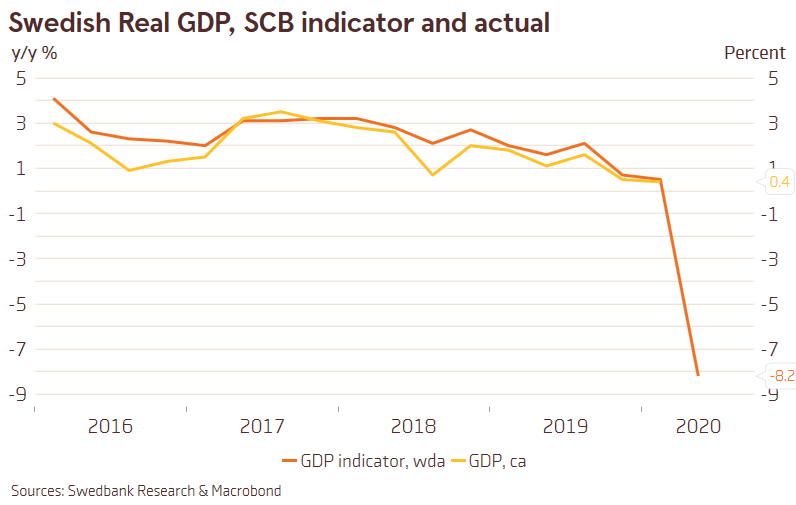

Of course they do. And they’re stupid and ugly too, all 150 million of them.
But look on the bright side: at least they give both sides of America, who are ready to start shooting each other, that one elusive thing they can agree on.
• US State Dept: Russia Pushing Coronavirus Conspiracy Theories Online (JTN)
U.S. officials contend that Russia is employing an online operation – including the disseminating of conspiracy theories and disinformation – to create confusion about the coronavirus, according to a new State Department report. The report described a Russian-based misinformation cycle that peddles sensationalist information via U.S. social media conversations and proxy websites. The department found that the Kremlin has focused its most recent efforts on conspiracy theories about the pandemic. The sites appear as standard-seeming news outlets, but in reality are tied to the Kremlin and Russian state-funded media. State-funded media outlets in Russia often publish similar stories to the ones seen on these deceptive sites.
Furthermore, officials in China and Iran, in addition to Russia, often share the claims found on these sites on their social media feeds, the report found. The head of the State Department’s Global Engagement Center, Lea Gabrielle, told AP that what makes the Russian disinformation strategy effective is that “it’s difficult for the average person online to look at these sites and know the Russian affiliation.” Most of the sites examined by the State Department were directly connected to the Kremlin in one way or another. One site, Canadian-based Global Research, frequently publishes articles written by fabricated authors created by the GRU – Russia’s military intelligence service. A different site, NewsFront, is registered to the Russian government.

Remember that Facebook, Google et al are banned in China.
• Trump Issues Executive Orders Against Chinese Owners Of TikTok And WeChat (F.)
President Trump signed a pair of executive orders on Thursday prohibiting Americans from doing business with Beijing-based ByteDance, the company that owns TikTok, as well as transactions related to the app WeChat with its owner, the Chinese tech giant Tencent, beginning September 20, in an effort to bar the social media platforms from the U.S. due to national security concerns. Both orders are set to take effect in 45 days, though they will likely be challenged in court. Microsoft is in talks to purchase the operations of TikTok in the U.S., Canada, Australia and New Zealand, a deal that Trump says he would support after initially expressing disapproval, and the two sides are hoping to complete a deal by September 15, which is before the 45-day deadline (at least three other companies are also vying to purchase TikTok).
The Trump administration had been threatening such a move for weeks over national security concerns, and on Friday the president told reporters on Air Force One he would “ban” the video-sharing platform from the U.S. In the orders, the president accused the companies of providing the Chinese government with access to Americans’ data and personal information, “allowing China to track the locations of Federal employees and contractors, build dossiers of personal information for blackmail, and conduct corporate espionage.” The White House also alleged that the Chinese government is monitoring WeChat messages to keep tabs on Chinese nationals in the U.S. WeChat, a messaging and payments app that has over a billion users, is one of the crown jewels for Tencent, which also has investments in American companies such as Epic Games, the maker of Fortnite, and Reddit.

Tencent is huge, it passed the $500 billion valuation back in 2018. WeChat has a billion users, all outside of China.
• Tencent Stock Plummets After Trump Announces Plan To Ban WeChat (CNN)
Tencent stock plunged on Friday after US President Donald Trump moved to ban WeChat, a social media app owned by the Chinese tech giant. Shares in Tencent plummeted as much as 10% in Hong Kong, before paring back some of those losses — though the stock was still down nearly 6% in afternoon trade. Hong Kong’s benchmark Hang Seng Index (HSI) fell 1.8%. The fall came after Trump issued executive orders that would ban WeChat and TikTok, the short-form video app owned by Beijing-based ByteDance, from operating in the United States in 45 days if they are not sold by their parent companies.
Trump had already said that he would ban TikTok if a deal for the app is not reached with an American company, but the inclusion of WeChat indicates that Washington is broadening its efforts to restrict some Chinese apps from operating in the United States. The moves to ban the apps represent an “unprecedented intervention by the US government in the consumer technology sector,” according to Paul Triolo, head of geotechnology at Eurasia Group, a political risk consultancy.It also marks the first time the government “has attempted to ban a software application running on millions of mobile phones” in the United States, Triolo wrote in a note on Friday.
A WeChat ban would be a blow to the Chinese diaspora, students and others in the United States who rely on the app to communicate with family, friends and business partners in China. WeChat is the overseas version of Tencent’s widely popular Chinese messaging app Weixin. The app provides a range of services, including instant messaging and the ability to send money to other users. According to the order, a ban would apply to “any transaction that is related to WeChat” made by any person or “any property” subject to the jurisdiction of the United States.

View from Japan.
• TikTok Sparks National Security Concerns (Japan Times)
Maybe it is a generational thing, but I don’t get TikTok. The social media app allows users to share brief (15-second) videos — as if I need more opportunities to shorten my attention span. I must be an outlier, though: It is one of the most popular apps of the last two years, with a reported 2 billion downloads, and has 10 million users in Japan, 110 million in the United States and 200 million in India (before it was banned in that country). That extraordinary growth has turned its parent, ByteDance, which acquired the app in 2017, into one of the world’s most valuable startup companies, with a value approximating $150 billion.
Its popularity reflects the creativity it nurtures — and a user’s ability to monetize his or her audience. Followers can send money to video creators they like: Tens of millions of dollars have been “gifted” in the U.S. alone in the last two years. [..] In theory, TikTok poses three distinct risks. The first is that the app is a Trojan horse that can surveil users. That theoretical concern became real a few months ago when researchers discovered that the app accessed users’ clipboards, which could expose sensitive data, including passwords. The company blamed anti-spam features in the software and quickly disabled them. Strike 1.
The second concern is one now raised with every piece of Chinese information technology, whether it’s hardware or software: Because the company is subject to Chinese law, Beijing can and will gain access to all user information it has. U.S. Secretary of State Mike Pompeo said that people should download the app only if they want their “private information in the hands of the Chinese Communist Party.” Again, researchers examined the app and concluded that TikTok’s data collection is consistent with that of similar applications. Will Strafach, an iOS security researcher, was cited in Wired magazine saying that “in context, TikTok appears to be pretty tame compared to other apps.”

Ai Weiwei is a unique voice on China. “In the 1960s Mao said: “Cut us off? Go ahead – eight years, 10 years, China has everything.“
• Think ‘Sanctions’ Will Trouble China? You’re Stuck In The Past (Ai Weiwei)
The Trump administration has floated the idea of sanctioning Chinese officials and members of the Communist party of China. Before we ask whether this is a good idea, let’s ask how Sino-US relations got to this stage. The US cold war with the Soviet Union was over ideology, but today’s standoff with China is different. The Chinese state has no ideology, no religion, no moral agenda. It continues wearing socialist garb but only as a face-saving pretence. It has, in fact, become a state-capitalist dictatorship. What the world sees today is a contest between the US system of free-market capitalism and Chinese state capitalism. How should we read this chessboard?
The post-Mao dictatorship in China has lived by the principle of “repress at home and be open to the world”. It has imported knowhow from abroad. There are an estimated 360,000 Chinese students currently enrolled who have come through America’s open door. Over 40 years, at least a million have returned to China and fed their new technical knowledge into the existing authoritarian structures that have built the dictatorship. It might be the most momentous personnel transfer in history. [..] But did capitalist competition, that ravenous machine that can chew up anything, change China? The regime’s politics did not change a whit. What did change was the US, whose business leaders now approached the Chinese dictatorship with obsequious smiles.
Here, after all, was an exciting new business partner: master of a realm in which there were virtually no labour rights or health and safety regulations, no frustrating delays because of squabbles between political parties, no criticism from free media, and no danger of judgment by independent courts. For European and US companies doing manufacture for export, it was a dream come true. Money rained down on parts of China, it is true. But the price was to mortgage the country’s future. Society fell into a moral swamp, devoid of humanity and difficult to escape. Meanwhile, the west made their adjustments. They stopped talking about liberal values and gave a pass to the dictatorship, in which Deng Xiaoping’s advice of “don’t confront” and Jiang Zemin’s of “lie low and make big bucks” made fast economic growth possible.
[..] Are sanctions the way to go? A foreign ministry spokesperson in Beijing recently remarked words to the effect that the US and China are so economically interlocked that they would amount to self-sanctions. The US, moreover, would be no match for China in its ability to endure suffering. And there he was correct: in dictatorships, sacrifices are not borne by the rulers. In the 1960s Mao said: “Cut us off? Go ahead – eight years, 10 years, China has everything.” A few years later Mao had nuclear weapons and was not afraid of anyone.

No love lost for the NRA here, but c’mon, less than three months before the elction, the Democrat DA for New York squeezes Deutsche to fork over Trump’s tax records and the Democrat AG of New York all of a sudden goes after the NRA?! Both cases couldn’t have waited a few months? And nobody mentions election tampering?
• NRA Files Countersuit Against New York AG Letitia James
The National Rifle Association sued New York Attorney General Letitia James on Thursday — the same day she brought a case to break up the pro-gun group — claiming she has misused her office to go after the organization for political reasons. “There can be no doubt that the James’s actions against the NRA are motivated and substantially caused by her hostility toward the NRA’s political advocacy,” the Albany Federal court lawsuit alleges. James made a campaign promise to investigate the NRA’s legitimacy as a non-profit organization and carried that torch after she was elected for the AG post because she disagrees with its politics, the suit charges. James “maligned” the group “without a single shred of evidence, nor any sincere belief, that the NRA was violating the New York Not-For-Profit Corporation Law, or any other law,” the court documents allege.
Once in office, James began “to deliver on her campaign promises to retaliate against the NRA for constitutionally protected speech on issues that James opposes,” the court documents allege. The NRA alleges it was forewarned by former AG Eric Schneiderman about a possible investigation into the group, prompting the organization to undertake “a top-to-bottom compliance review of its operations and governance.” And now its “finances are more robust than ever, and it operates to a high standard of compliance” with the law, the court papers claim. This ruffled feathers with some connected to the NRA, who were “discontented with the principled path it had chosen” and it even prompted litigation against the NRA’s former advertising agency Ackerman McQueen, the court papers charge.
And when James then launched her investigation of the NRA in April 2019, three months after taking office, the NRA says it cooperated, providing documents and testimony from employees. “Despite hopes that playing by the rules would procure a just outcome, the NRA has not been treated fairly by James’ office,” the suit says. “James’s threatened, and actual, regulatory reprisals are a blatant and malicious retaliation campaign against the NRA and its constituents based on her disagreement with the content of their speech,” the lawsuit alleges. “This wrongful conduct threatens to destabilize the NRA and chill the speech of the NRA, its members, and other constituents.”

What’s in it for #julianAssange?
• Judge Calls For Assange Testimony In Fox News Civil Suit Over Seth Rich (JTN)
A U.S. federal judge has asked the U.K. to assist in facilitating the testimony of Wikileaks founder Julian Assange in a civil suit against Fox News brought by the parents of slain Democratic National Committee staffer Seth Rich. U.S. Magistrate Judge Sarah Netburn said in a filing on Wednesday that Assange’s evidence “cannot be secured except by the intervention of the English courts,” and that such intervention “would serve to further the international interests of justice and judicial cooperation.” At issue is a civil lawsuit brought by the parents of Rich, who worked in the DNC’s voter expansion division. Rich was shot and killed in July 2016 in Washington, D.C., in what police suspect was a botched robbery.
Conspiracy theories following Rich’s murder alleged that he had been involved in the hacking and subsequent leaking of DNC emails prior to death. The emails were published in part by WikiLeaks. After Rich’s death, Fox News reported that he had had contact with Assange prior to his death. The cable news network subsequently retracted the article, claiming it had not been properly vetteed prior to publication. The following year, Rich’s parents brought suit against Fox over the article, claiming the network had perpetrated intentional infliction of emotional distress against them. Fox in turn has argued that, retraction notwithstanding, the article was not a “sham” as alleged by the plaintiffs.
In her request Wednesday, Netburn said that “evidence regarding the source of the leaked DNC emails and the communications (if any) between Seth Rich and WikiLeaks will be highly material to Fox’s contentions.” “Mr. Assange, as founder of WikiLeaks, is exceptionally suited to provide testimony that will be highly relevant to these issues,” Netburn wrote.

The only charisties that will be left are the ones run like global corporations. With a CEO who makes $1 million a year and volunteers who do all the work. That’s bad news for the people who rely on them.
• Almost Half Of UK Charities For World’s Poorest Set To Close In A Year (G.)
Nearly half of the UK’s small charities working with the world’s poorest people expect to close within the next 12 months due to lack of financial support, a survey has found. Despite most of them seeing a spike in demand for their services during Covid-19, 15% of the charities will be forced to shut their doors within the next six months, and 45% within a year, according to data from the Small International Development Charities Network (SIDCN). The pandemic – predicted to force one in 10 UK charities into bankruptcy by the end of 2020 – has delivered a triple whammy to smaller overseas charities, according to SIDCN. British charities working abroad have not been eligible to apply for the UK government coronavirus community support fund, and many British funders have amended their giving criteria to donate to projects based solely in the UK.
The Department for International Development (DfID)’s merger with the Foreign Office and the subsequent £2.9bn cut to the 2020 overseas aid programme have left little room for small charities to function, said CEO Rita Chadha of the Small Charities Coalition, which supports more than 100 small NGOs. “There are over 10,000 small international charities with an income of under £1m in the UK,” said Chadha. “Their work rarely gets noticed beyond those that they directly work with, but their impact is huge. Helping young girls get an education, providing micro grants for businesses, and investing in clean drinking water is what makes us collectively safer and better. Covid-19 has proven we can no longer afford to think just local.”
[..] SIDCN, which surveyed 53 small charities/nonprofits working overseas with a maximum annual income of £1m, found that 72% had seen an increased demand for their services during the pandemic, with 57% having had to postpone programmes or projects. “The lack of any support for international charities has been debilitating,” one charity head told researchers. “We have had to close the office and cut staff and staff hours but the demands on our now-reduced team have only increased. The amount of funding for immediate partner Covid needs is paltry,”

While you weren’t looking.
• Canada’s Last Fully Intact Arctic Ice Shelf Collapses (R.)
The last fully intact ice shelf in the Canadian Arctic has collapsed, losing more than 40% of its area in just two days at the end of July, researchers said on Thursday. The Milne Ice Shelf is at the fringe of Ellesmere Island, in the sparsely populated northern Canadian territory of Nunavut. “Above normal air temperatures, offshore winds and open water in front of the ice shelf are all part of the recipe for ice shelf break up,” the Canadian Ice Service said on Twitter when it announced the loss on Sunday. “Entire cities are that size. These are big pieces of ice,” said Luke Copland, a glaciologist at the University of Ottawa who was part of the research team studying the Milne Ice Shelf.
The shelf’s area shrank by about 80 square kilometers. By comparison, the island of Manhattan in New York covers roughly 60 square kilometers. “This was the largest remaining intact ice shelf, and it’s disintegrated, basically,” Copland said. The Arctic has been warming at twice the global rate for the last 30 years, due to a process known as Arctic amplification. But this year, temperatures in the polar region have been intense. The polar sea ice hit its lowest extent for July in 40 years. Record heat and wildfires have scorched Siberian Russia.
Summer in the Canadian Arctic this year in particular has been 5 degrees Celsius above the 30-year average, Copland said. That has threatened smaller ice caps, which can melt quickly because they do not have the bulk that larger glaciers have to stay cold. As a glacier disappears, more bedrock is exposed, which then heats up and accelerates the melting process. “The very small ones, we’re losing them dramatically,” he said, citing researchers’ reviews of satellite imagery. “You feel like you’re on a sinking island chasing these features, and these are large features. It’s not as if it’s a little tiny patch of ice you find in your garden.”

We try to run the Automatic Earth on donations. Since ad revenue has collapsed, your support is now an integral part of the process.
Thank you.

Beirut August 2020.


Carl Sagan 1995
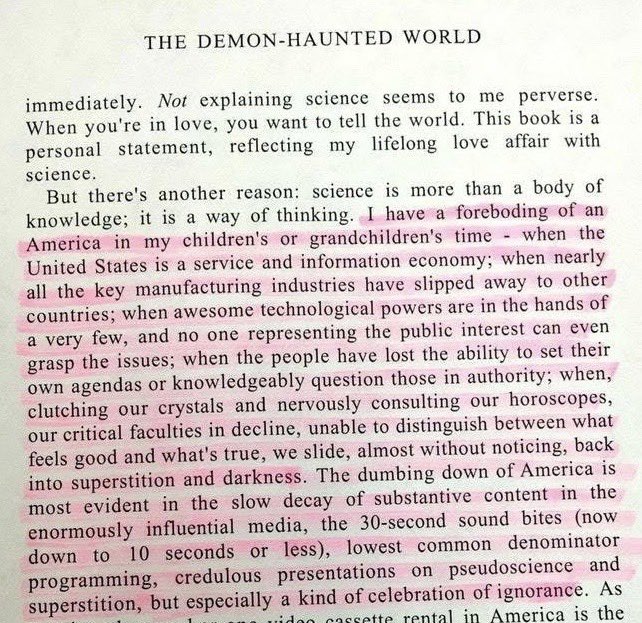

Let all souls here rest in peace; for we shall not repeat the evil.


Support the Automatic Earth in virustime.








Home › Forums › Debt Rattle August 7 2020